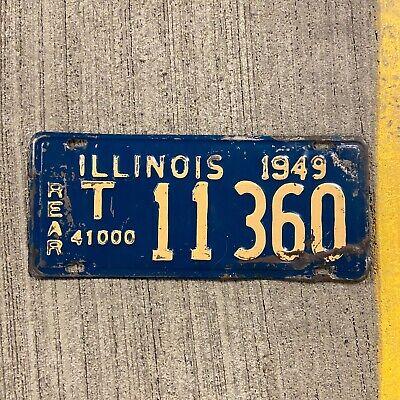Illinois Considers Mileage-Based Tax to Revamp Transportation Funding
Addressing Illinois’ Transportation Budget Crisis with a Mileage Tax
Facing escalating costs for road upkeep and shrinking revenues from customary fuel taxes, Illinois is evaluating a novel funding strategy: imposing a tax based on the miles driven by each motorist. As vehicles become more fuel-efficient and electric cars gain popularity, the state’s gasoline tax income has steadily declined, prompting officials to seek a more enduring and equitable funding model. The proposed mileage tax aims to ensure that every driver contributes fairly to the maintenance of Illinois’ transportation infrastructure,regardless of their vehicle’s fuel type.
Key elements of the proposal include:
- Voluntary GPS tracking: Drivers can opt into a system that records mileage via GPS, designed to protect privacy by limiting data collection.
- Odometer verification: Periodic mileage checks during vehicle inspections offer an alternative method for tracking miles driven.
- Variable tax rates: Charges may vary depending on factors such as vehicle weight or environmental footprint,encouraging greener transportation choices.
| Miles Driven Annually | Proposed Rate per Mile | Estimated Yearly Cost |
|---|---|---|
| Up to 5,000 miles | $0.015 | $75 |
| 5,001 to 10,000 miles | $0.015 | $75 – $150 |
| Above 10,000 miles | $0.015 | Varies based on mileage |
While proponents highlight the fairness and long-term viability of this approach, critics voice concerns about privacy risks and the administrative burden of implementing such a system. The debate is intensifying as Illinois residents and policymakers weigh the pros and cons.
Impact of the Mileage Tax on Different Driver Groups in Illinois
Transitioning from a fuel tax to a mileage-based system would significantly change how Illinois drivers contribute to road funding. The tax would directly correlate with the distance traveled, affecting various groups differently:
- City commuters who drive moderate distances daily might see a slight increase in costs.
- Suburban drivers with longer commutes could face higher expenses.
- Rural residents who often travel extensive distances for work or necessities may experience the most ample financial impact.
To illustrate, here’s a comparison of estimated annual payments under the current fuel tax system versus the proposed mileage tax for typical driver profiles:
| Driver Category | Average Annual Mileage | Current Fuel Tax Paid | Projected Mileage Tax Paid |
|---|---|---|---|
| Urban Commuter | 12,000 miles | $180 | $180 |
| Suburban Driver | 15,000 miles | $225 | $225 |
| Rural Resident | 20,000 miles | $300 | $300 |
Advocates argue this system promotes fairness by charging drivers in proportion to their road usage, while opponents worry about the financial strain on those who must drive longer distances due to limited transit options.
Community Reactions and Legislative Perspectives on the Mileage Tax
Public response to the mileage tax proposal has been mixed, with important concerns emerging from various stakeholders:
- Rural and suburban residents express apprehension about increased costs, fearing the tax could disproportionately affect those with fewer transportation alternatives.
- Privacy advocates caution against potential misuse of location data, urging strict protections and transparency in any tracking system.
- Supportive lawmakers and transportation experts emphasize the necessity of modernizing funding mechanisms to keep pace with evolving vehicle technologies and usage patterns.
To address these concerns, several mitigation strategies have been proposed, including:
- Implementing caps on annual mileage charges to protect high-mileage drivers
- Offering exemptions or reduced rates for low-income individuals and essential workers
- Enforcing rigorous data privacy standards to safeguard driver data
| Group | Primary Concern | Proposed Solution |
|---|---|---|
| Rural Drivers | Financial burden from long-distance travel | Mileage caps and exemptions |
| Privacy Advocates | Data security and surveillance risks | Strict privacy protocols |
| Legislators | Funding shortfalls for infrastructure | Adoption of modern tax models |
Preparing for the Potential Shift: What Illinois Drivers Should Know
As discussions continue, drivers are encouraged to stay updated on legislative developments and understand how the mileage tax might affect their finances. Proactive steps can help motorists adapt smoothly to any new requirements:
- Monitor mileage: Utilize smartphone apps or vehicle odometers to keep accurate records of miles driven.
- Adjust budgets: Anticipate possible increases in transportation costs and plan accordingly.
- Explore alternatives: Consider carpooling, public transit, or telecommuting to reduce total miles driven.
- Maintain vehicles: Regular upkeep can improve fuel efficiency and ensure compliance with inspection protocols.
| Recommended Action | Expected Benefit |
|---|---|
| Track Mileage | Accurate reporting and cost forecasting |
| Budget Planning | Financial readiness for new charges |
| Use Alternative Transportation | Reduced mileage and tax liability |
| Vehicle Maintenance | Enhanced efficiency and regulatory compliance |
Final Thoughts on Illinois’ Mileage Tax Proposal
As Illinois explores innovative solutions to fund its transportation infrastructure, the proposed mileage tax represents a significant shift from traditional funding models. While it promises a fairer and more sustainable revenue stream, the plan also raises vital questions about privacy, equity, and implementation logistics. Ongoing dialog among lawmakers, communities, and advocacy groups will be crucial in shaping a policy that balances these factors effectively. Illinois drivers should remain engaged and informed as this important conversation evolves, ensuring their voices contribute to the future of the state’s transportation funding.





